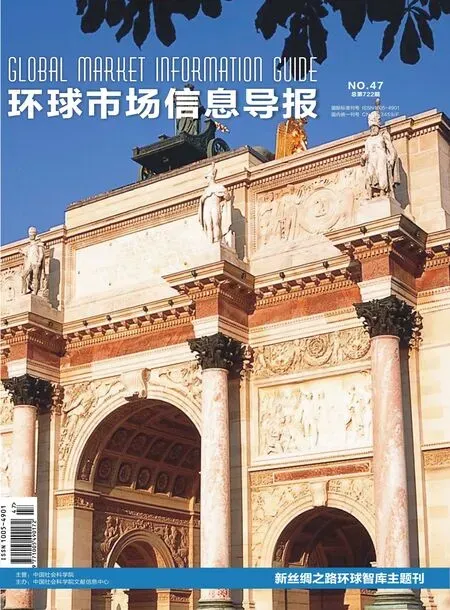The study on corporate management under the background of the sharing economy
◎ Su Hui
The study on corporate management under the background of the sharing economy
◎ Su Hui
A sharing economy is a new economic form in the internet age. Its formation is based on the development of internet platforms which integrate different resources to meet customers’ specialized needs at a lower cost. The essay analyses the influences on management ideas, management models, management structures of the sharing economy by comparing with the management systems in traditional economy and then gets some enlightenments through the study on it .Hopefully the study on corporate management may make some contributes to the future development of the sharing economy.
Management models, Management structures
THE INTRODUCTION OF SHARING ECONOMY
The formation of the sharing economy is based on building the internet platform, which integrates idle resources from suppliers and temporarily transfer the right to use to demanded sides at a lower price in order to achieve a win-win situation. But all of the transactions should be based on mutual trust and advanced internet technology availability. It creates more value for customers and in return,makes more profits for companies.
Based on this model, business efficiency get improved a lot, business cost become lower and customers’specialized needs are met as well.That’s why more companies are keen to transfer their original business model to this new model.
T H E I N F L U E N C E S A N D IMPLICATIONS ON CORPORATE MANAGEMENT
MANAGEMENT IDEAS
In the sharing economy, traditional management functions have changed a lot.
-Ownership rights change to sharing rights
Traditional managers keep their management ownership in their hands to direct staff. They view employees as economic men; payment is the only way to motivate staff. But this view does not adapt to the sharing economy since workers have a wide range of needs as social men. The cooperation between employees and employers is the key element to drive the sharing economy development. Consequently, Team spirits, individual’s freedom, a sense of ownership should be developed.Therefore, the managers in the sharing economy are more likely to be consulters when workers ask for help, be fire fighters when dealing with accidents and meanwhile develop talents to better serve for the company, buy time to finding future vision.
-Complicated management change to simplified management
Managers in traditional companies spend a lot of time allocating tasks and monitoring staff rather than making business strategy. But in the sharing economy, more tasks could be delegated to employees to encourage their initiatives. Profit-sharing scheme can be applied as well to link staff and the company closely. The more efforts workers put, the more rewards will be get. Employees get higher value from their work than in traditional industries.By doing these, staff’s motivation can be improved and manager’s time can be devoted to finding resources for adding value and improve creativity for the company as well.
MANAGEMENT MODELS
-Focus on resources integrated rather than key resources occupied.
In traditional industries, companies take care on key resources occupied which
may build high entry barriers and resources organization internally which can
improve efficiency. But the sharing economy challenges the traditional system.
It focuses on external resources integration to achieve economies of scale and
lower transaction costs.
-Platforms more important than processes
Traditional businesses tend to built detailed business processes to run business activities smoothly. The procedure of the business is a top priority. Only limited range of products can be produced within the traditional model. It just meets standardized needs.With the emergence of the sharing economy, platforms take initiative to do searching and filter for customers, which does not require customers to search through visiting stores or browsing the internet by themselves. More importantly, specialized needs can be met; time and energy can saved through platform searching automatically.
MANAGEMENT STUCTURES
Traditional organization structures are strong at execution, standardized career development, clear job allocation, but the drawbacks are slow feedbacks, less flexibility and lack of horizontal communication. Role culture is emphasized based on hierarchical organizations with relatively high transaction and management costs.
The future trend of the organizational structure in the sharing economy tends to be a virtual structure which has no formal hierarchicalstructures∶
Less boundary/ No formal leaders/Build a strong network between different functions of departments/Using Internet technology to integrate the business structure/Sustainable change /Delayer or quite flat structure
All the above characteristics can help business improving team spirits,promoting innovation, creating more successful solutions by the crossover of ideas between people with specialist knowledge and becoming more flexible to be customer-focus business.
THE ENLIGHTENMENT OF FUTURE MANAGEMENT
The sharing economy as a new business model does exceed traditional businesses in some senses, but the successful businesses do not just need capital equipment and innovative products-they need a workforce that shares the same objectives and priorities as the management of the business. So constant corporate management improvement makes sure sustainable development of the sharing economy.
For management ideas, managers could trust and delegate more tasks to subordinates rather than keeping management decision in their own hands.
For management model, resources integration should be emphasized rather than resources occupied. Meanwhile,building platforms is more important than making perfect processes.
For management structure, A Virtual structure is a future trend.“Flexibility” “innovation-driven”“cooperation” are key elements for future organizational structures.
The essay discusses the corporate management from three sides, which are all explicit factors. More Implicit factors such as corporate culture could be deeply analyzed in further studies to promote the development of the sharing economy.
上海外語大學(xué)賢達(dá)經(jīng)濟(jì)人文學(xué)院)

